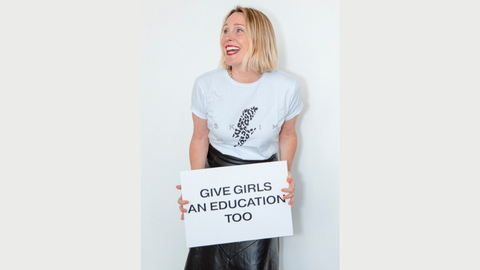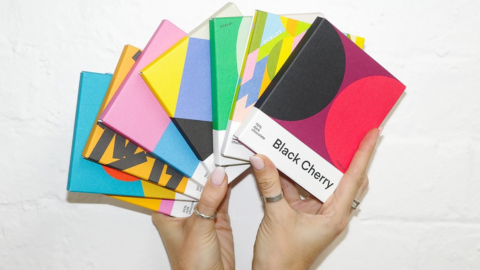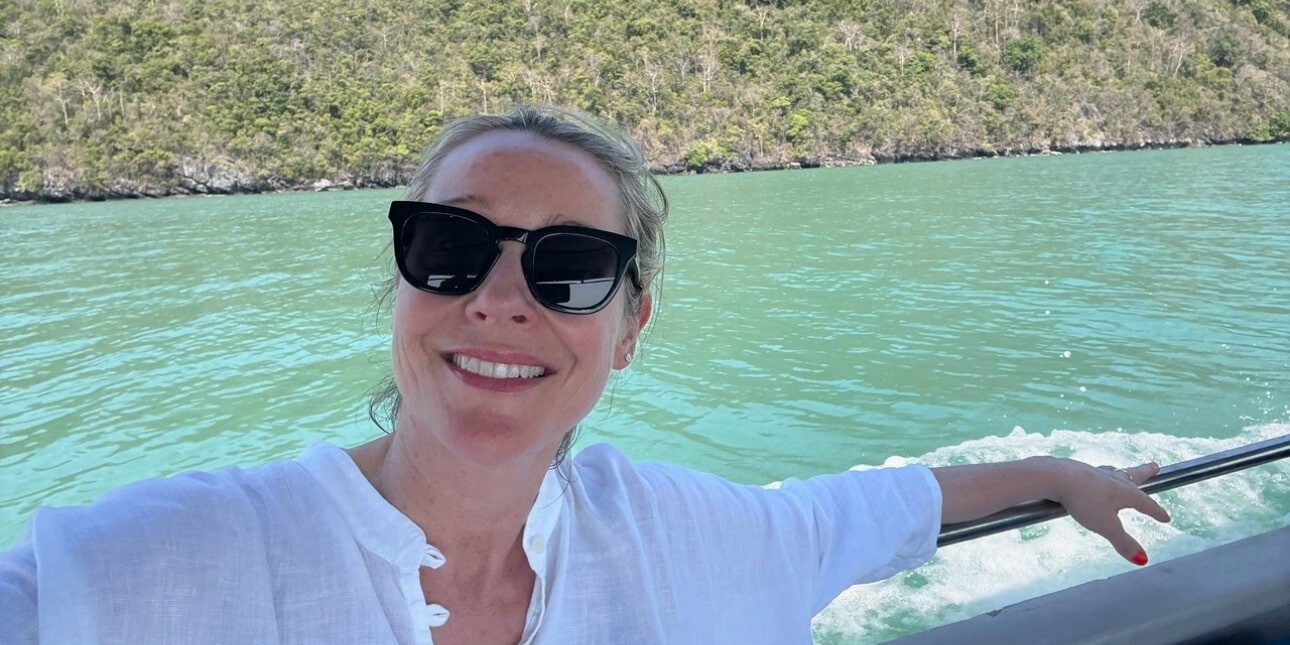Juliet Kinsman is over the word ‘sustainability’
The sustainable-luxury expert on why some press trips don’t hit the spot, that transparency is key and how to give older women more media visibility
Juliet Kinsman began her career as a dance music journalist. Having mastered the art of informing while also entertaining in that role, she helped create stylish hotel bible Mr & Mrs Smith, and is also a noted consultant and speaker when it comes to sustainable luxury.
She founded communications consultancy Bouteco in 2016 to facilitate trusted, greenwashing-free storytelling and content around sustainable luxury travel, and in 2020 was named Condé Nast Traveller’s first-ever sustainability editor.
Whatever I’m working on has to engage my heart. It’s about delivering key information that is useful to the reader in a way that is uplifting to read. Dance music in the 90s was really something very special, and it connected with my heart. It was never a planned career trajectory, but I’ve always loved travel, and I’ve always loved hotels as an expression of creativity through design. And then I just started to care more about the human beings in the places I was visiting. As a journalist, you’re generally led by curiosity, and hopefully with a conscience tuned into justice.
I now work in luxury travel and there's no ecosystem which is more about privilege than that, right? But ultimately, I'm a very egalitarian person, and what I loved about nightclubs is that they’re a leveller. You can come from any walk of life and you've got into this great party and you’re all dancing together.
And I think what I feel about luxury travel and privilege is that the people employed within it may come from humble backgrounds, but they should damn well be benefiting from the spend of those at the top. The people spending a lot of time in these hotels are the ones causing some of the world's biggest inequalities. We are all watching The White Lotus right now, and you can call it satire, but it’s pretty accurate.
Every business should be about bridging a gap. With Mr & Mrs Smith, that gap was between the text-heavy traditional guidebooks and beautiful style-over-substance coffee table books. We wanted something that was beautiful but user friendly, and so the tone of voice was intended to sound like a playful but trusted friend. And as I was a journalist, I knew press trips weren’t a genuine representation of where you might be going, so I introduced anonymous hotel reviews. At Mr & Mrs Smith, we celebrate the hotels from both sides.
I think we’re all over the word ‘sustainable’. I know it's the one we all use, but it has become a bit meaningless, hasn't it? My mind goes to whether it is very specifically regenerating nature, or is it very specifically supporting a marginalised community? Is it very specifically reducing waste? There are all these different shades of sustainability.
I prefer to refer to ‘examining impact’, and whether a course of action is nature-positive or helpful to the local community.
Economic sustainability is really where I try and help people better understand that every time we spend money, it’s an opportunity to choose a better business. We still have to raise awareness that every single time we make any choice, we can either choose one that is kind to nature or people – or one that is not.
I tried hard after the pandemic not to fly unless I really had to. I spent a lot of money and time on trains in Europe. But the reality is that, to earn a living as a speaker, I have to fly places, so I strive for what I call return on emissions – ‘ROE’ – to ensure that for every trip I take by plane, I maximise my opportunities for impact, whether that's talking to a large audience or exploring sustainable businesses that I can celebrate on my social media; essentially I don’t do hit-and-run short trips.
We have to change our bad habits: just flying in and out of conferences is terrible. I was booked to speak at a conference in Athens in an airport, and they were just going to stick me in front of an aircraft hangar and then fly me back. They wouldn’t extend my trip so I could make the most of my airmiles and visit one of the newly approved Unesco geoparks in Greece — so I cancelled because I won't be used as a vehicle for greenwash.
Women are usually much more open to flexible and creative approaches to systems, so if the people who booked me to speak aren’t flexible in facilitating me to make more of my trip, they’re not kindred spirits.
There are business benefits to having better gender balance in your teams. Studies show that women in leadership can allow for more creativity and flexibility, because that's how we have to live our lives, particularly when you’re holding a child under your arm. I’ve loved working for organisations run by women. Typically, organisations run by women are much, much more helpful for me. In hospitality, businesses that have more women in leadership or a more equal balance of people working there tend to have better staff retention.

The industry needs more visibility that gives dignity to older women. We are so airbrushed out of everything. We need more intergenerational conversations with a respectful exchange of ideas and to stop being made to feel irrelevant and invisible.
We also require a deeper understanding of why we need improved inclusivity and diversity in our workforces. It is so profoundly depressing to see the narrative and the bullying coming out of the United States right now, where they're actually trying to force businesses to downgrade their inclusivity.
I’d also like to see more true cost representation in people’s financials: so if you can see your shares going up in value, what does that mean in terms of the effects on natural resources, the environment, and how much of that profit has benefited the local community?
I would also love us to explain more about why certain aspects of sustainability matter in context. So why is, say, this Ocelot chocolate made with Original Beans chocolate that buys cacao from Indigenous farmers in Colombia so important? Well, it’s because those Indigenous farmers are looking after biodiverse land in one of the most key carbon sequestration parts of the world, unlike certain brands that claim ethical credentials but fall short when it comes to real transparency. We need more clever communications.

The biggest challenge in businesses is short-term thinking. The tension with the bottom line and short-term profit. Everybody just wants maximum return on minimum spend, right? That’s what Trump is doing. He just wants to reduce outgoings: he doesn’t care about investing in education because he doesn't care about the long-term improvement of society.
It's going to cost you more to be more sustainable, but sustainability can equal economic efficiency. Here's a perfect example: if you properly service and clean your air conditioning units, they will operate more efficiently and could be 20 percent less costly to run in terms of energy use. It’s down to leadership and company cultures, embracing the opportunity for change and being prepared to explore different ways of doing things. Don't always blindly follow your MO as you've always done it.
Juliet shares stories to inspire impact on Instagram @JulietKinsman @BoutecoHotels
.png/Sara%20Nelson%20(3)__150x150.png)
Sara Nelson is a freelance journalist.
You may also like:
Louise Tickle: 'It's essential to present dark and traumatic topics in an engaging way'
.jpg&w=728&h=90&maxW=&maxH=&zc=1)
